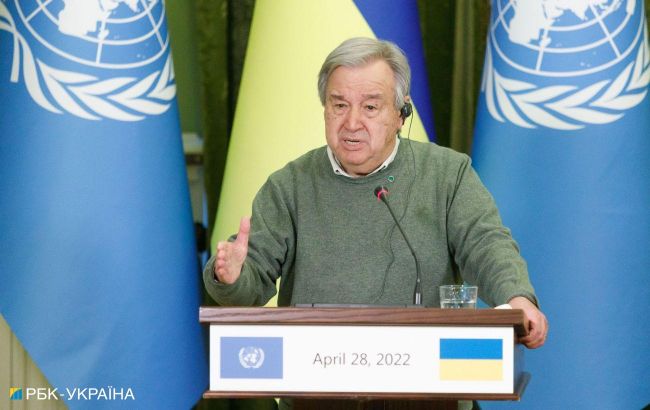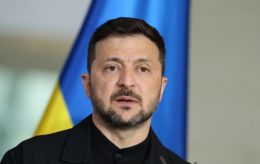UN Secretary General justifies the need to eliminate nuclear weapons in the world
 United Nations Secretary-General Antonio Guterres (Photo: RBC-Ukraine, Vitalii Nosach)
United Nations Secretary-General Antonio Guterres (Photo: RBC-Ukraine, Vitalii Nosach)
The nuclear risk has escalated to a level not seen since the Cold War due to geopolitical mistrust and rivalry, said United Nations Secretary-General Antonio Guterres.
"The only way to eliminate the nuclear risk is to eliminate nuclear weapons," said António Guterres, urging countries to work together to banish these "devices of destruction to the history books, once and for all," Guterres said in his address on the occasion of the International Day for the Total Elimination of Nuclear Weapons, observed on September 26.
According to the head of the UN, the progress achieved over many decades in preventing the use, spread, and testing of nuclear weapons is now being eroded.
Nuclear potential and international agreements
According to the UN, there are approximately 12,500 nuclear weapons today. Countries possessing such weapons have long-term, well-funded plans to modernize their nuclear arsenals.
Moreover, there is no shortage of regional and global agreements that establish frameworks for nuclear disarmament.
The Treaty on the Non-Proliferation of Nuclear Weapons (NPT) not only obliges signatories to halt its proliferation but also encourages the peaceful use of nuclear energy and disarmament. It is the only treaty that obliges nuclear-armed countries to disarm under international law. It opened for signature in 1968, entered into force in 1970, and was extended indefinitely in 1995. Approximately 191 countries, including the five openly acknowledged nuclear-armed states, are parties to it, making it the most ratified disarmament treaty.
Another significant pillar is the Comprehensive Nuclear-Test-Ban Treaty (CTBT), adopted in 1996. It has been signed by 185 countries and ratified by 170, including three nuclear-armed states: France, Russia, and the United Kingdom.
However, for the treaty to enter into force, 44 specific states possessing nuclear technology need to be signed and ratified, eight of which have yet to confirm it: China, Egypt, India, Iran, Israel, North Korea, Pakistan, and the United States.
The nuclear threat from the Kremlin
According to a survey by the Levada Center, around 30% of Russia's population expects Putin to launch a nuclear strike against Ukraine.
Additionally, U.S. President Joe Biden has stated that the threat of Russia's President Vladimir Putin using tactical nuclear weapons is "real."

